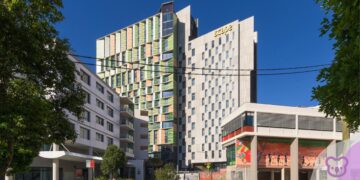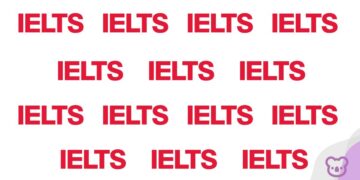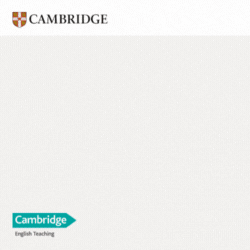On Wednesday, ABC’s Adele Ferguson penned a story entitled ‘The fake qualifications and financial fraud of Australia’s shadowy private college sector’, which was followed up with an appearance on the 7.30 report.
The story follows a student, Chay Chen, a student seeking a Certificate in Training and Assessment to help him get a job teaching English in regional Australia.
Chay Chen’s story is a heartbreaking one. He had previous experience teaching English and computers at community organisations and believed a formal qualification would help him find teaching work. Using his prior experience, he was offered RPL (Recognition of Prior Learning). In layman’s terms, to be exempted from study where he already has the knowledge. This a valid tool used by all tertiary-level institutions.
In Chay Chen’s case, Ferguson states, ‘Within weeks, he received a Diploma of Community Services issued by Luvium along with a separate record of results, listing subject units he had supposedly enrolled in and passed.’
For full transparency, the story goes on to say:
Over a series of WhatsApp messages with a representative of Get Certified Australia, who called himself Ameer, Chan was given a range of excuses and apologies and told: “Listen we already paid $2,000 to college. For diploma of community services.”
Chan realised he wasn’t going to get a refund or the correct certificate.
In one exchange the representative said: “Any other qualifications do you need.” Chan says he didn’t take the offer seriously and replied, “PhD,” to which the representative responded: “PhD in psychology…I can help to make money online. Do you have soft skills. Future billionaire investor in cryptocurrency.”
Communications ceased when Chan posted a message in the WhatsApp thread stating that he had reported the business to the authorities. The phone number was changed, the website noted “maintenance mode is on” and the business address on the invoice Chan received turned out to be an empty office.
It is heartbreaking to see this occurring in our sector, and any non-legitimate provider should be booted.
How widespread is the problem?
This is where the story and the reporting of the story starts to divide the multitude of folks The Koala has spoken with.
Chan’s issue, as articulated by Ferguson, is clearly about the legitimacy of qualifications issued and of allegedly fraudulent operators in the training space. Receiving a diploma without studying for it. There is no excuse, don’t go past go and do not collect $200. Perpetrators of this behaviour need to be dealt with urgently and appropriately punished. No one wants fraudsters in any industry and we definitely don’t want them in education.
The link and intertwining of this behaviour throughout the story to another, RPL – the recognition of Prior Learning is a stretch, but Jo public wouldn’t know that.
To then go on and sprout statistics about regulatory actions without much context or evidence further leads the audience to believe the sector is in utter disarray and to potentially lose faith with all providers.
Let’s break this down:
RPL
The definition of RPL according to ASQA is:
Recognition of prior learning (RPL) is a process that assesses your competency—acquired through formal and informal learning—to determine if you meet the requirements for a unit of study.
You can use a variety of documentation to apply for RPL. This includes, but is not limited to:
- records of completed training
- assessment items
- assessment records
- declarations from your employer, and/or
- a copy of your student records provided by ASQA.
Each provider has its own RPL process, so when you are accepted by a new provider, speak to your new provider for assistance with applying for RPL.
RPL is a common tool used by all education providers to exempt students from having to study what they may already have.
In Australia, it is especially important as the Australian Qualifications Framework facilitates pathways to, and through, formal qualifications. Over time students may experience overlap between qualifications or previous knowledge acquired which is absolutely normal.
With the rise in the cost of education, students seek to maximise their RPL to cut down on the cost of their next qualification. Some examples are straightforward, where say a marketing unit appears in two qualifications, other may be broader, say when student who may have a business degree seeks to study massage therapy. A unit in the program may be massage practice management. A determination is made on whether the student’s prior business degree may provide sufficient knowledge to not have to undertake the massage practice unit. This of course, should be awarded if the outcomes of the program will not be compromised.
Jeanette Cheah, CEO of HEX, observes, “Applied correctly and ethically, RPL can be a powerful tool to help students reduce the costs and time of their study, and supports a sector that serves a diverse, multi-generational and global student base. At HEX, we believe RPL can be best relied upon when higher education providers work closely with industry to truly validate a student’s skills and knowledge. Herein lies a great opportunity for innovation and collaboration.”
With the pressure to maximise RPL comes the temptation to award RPL ‘to get the student over the line’.
So, who monitors this?
The practice itself is carried out by institutions. There has never been a requirement to have this checked independently. Where a professional body membership may come into play often providers check this with the professional body to ensure there is no problem for the student gaining membership on completion of their studies.
In the case of Universities, which are self governing providers, TEQSA may check that no significant breaches are taking place, as they would per entry standards. In the case of the VET sector re registration audits should cover this. The claims made by Ferguson appear to be that these checks and balances have not been taking place and that another system is required.
Ferguson says “Colleges have been abusing the RPL system for years but the issue gained widespread attention in 2023 when the NSW building commissioner ordered a skills audit on construction sites after discovering some workers were buying qualifications instead of completing proper training, leading to unsafe and substandard work.”
To be clear, The Koala believes buying qualifications is not an abuse of the RPL system. It is straight-up fraud of the whole system.
Independent verification of RPL has been floated in Australia, but the powers that be can’t decide on the mechanism, and the cost appears too high, with implementation timelines anticipated to take years.
There is no doubt that high-risk providers should be monitored, and why this isn’t part of the regulator’s purview is concerning. Something Ferguson fails to raise.
What is more concerning is Fergusons comments on TV later in the night where she says “… have fabricated qualifications, and they are going out on building sites and building apartment blocks, and this is why there are some real issues with buildings.”
Paraphrasing Sarah Henderson, the host of 7.30, asked Adele Ferguson how one may find out if someone has these qualifications from a shonky provider.
“There in lies the problem, because it is so pervasive”. She responds
The Koala is no mathematician but 4 colleges being shut down of 4000 is 0.1 pc. Add in 138 that are under investigation, taking into account that no findings have been made and there is no sense of wideness of allegations even at the worst possible ration we are speaking of 3.5pc of colleges.
Hardly pervasive.
The Koala does not want to give the impression this is okay; far from it, it is not, and anyone found to be rorting the system should be closed down and dealt with, but accurate reporting is important too.
Sensationalising the topic
The story provides several ‘facts’ to back up the narrative it is attempting to run.
Fact one – College closures
Over the past year, the Australian Skills Quality Authority (ASQA) has ramped up enforcement, cancelling the registrations of 51 private colleges in the year to June 2024 — a 34 per cent increase from the previous year. In the six months to December 31, 2024, another 28 were deregistered.
There is zero effort to explain why these colleges were shut down. I remind readers of the claims the government shutdown 150 ghost colleges only to be fact-checked that these were dormant providers, not ghost colleges.
Fact two – The Nixon review
It appeared strange to see the Nixon review quoted in what was a largely domestic issue being explored – the sale of qualification and RPL abuse, but nonetheless it was quoted.
It said: Christine Nixon, who authored the Rapid Review into the Exploitation of Australia’s Visa System in March 2023, says some colleges are complicit in people coming to Australia illegally.
“I found particular nationalities who exploit their own nationalities,” she says.
Nixon made 34 recommendations focusing on strengthening regulations, improving enforcement, and addressing vulnerabilities in the visa system to prevent exploitation, particularly of migrant workers.
The Nixon review was set up to look at the abuses to the visa system in human trafficking, it’s purpose being:
In October and November 2022, the Trafficked project led by 60 Minutes, The Age, and The Sydney Morning Herald reported allegations of visa rorts, sex trafficking and foreign worker exploitation. Specific allegations were made against a number of Registered Migration Agents (RMA).
The Australian Government is deeply concerned by the exploitation and abuse of all vulnerable people including temporary migrants, and has no tolerance for our visa system being abused through the methods alleged in the Trafficked media reporting.
The Minister for Home Affairs established this Rapid Review into the Exploitation of Australia’s Visa System to complement work that is already being progressed to address migrant worker exploitation, and to identify proposals for both systemic reform and discrete measures to prevent, deter and sanction individuals who seek to abuse Australia’s visa system to exploit vulnerable migrants.1
This appears to be out of context but fuel to the fire of the story.
Fact 3: Industry insiders say a third of the 4000 providers are shonky
This was the line on the 7.30 report. This is the quote from the online story
Quality College of Australia boss Richard Finlayson says the sector has had problems for decades. He estimates that one-third of private colleges do the right thing in terms of compliance, one-third are in the middle and the rest don’t care.
That’s right. One person’s opinion leads the narrative, or atleast that what The Koala could source. Hardly grounded stuff. He may be right, he may be widely off target, but to lead a story based on a single opinion. In the words of one sector voice the Koala spoke with is ‘nothing short of sensationalisation’.
“What we have seen is poorly informed, inaccurate or misleading commentary and reporting on well-known and historical cases where action is rightly being taken. Commentary of this nature is more likely to undermine the progress being made across the system to strengthen Australia’s international education sector than it is to promote progress,” according to Mr Felix Pirie, Chief Executive Officer of the Independent Tertiary Education Council Australia.
“Persistent efforts by some commentators to diminish the sector broadly, does enormous damage to all sector participants and to Australia’s reputation. ITECA will continue to work closely and constructively with regulators and policymakers to lift the sector, not tear it down,” said Mr Pirie.
Phil Honeywood, CEO of the International Education Association of Australia, says of the story, “This type of media analysis is important to identify bad behaviour and exploitation; however, it only applies to a tiny minority of accredited private education providers across the country.
The fault can be laid squarely at the door of previous federal governments. On the one hand, many would argue that the regulatory settings were not robust enough to weed out the wrong type of provider. On the other hand, until recently, there was a major lack of funding for our national regulators to proactively audit these college’s operations. Quite rightly, this media report highlights that ASQA has ramped up their enforcement by cancelling a number of college registrations.
Even then, a typical Australian lawyer’s picnic takes over where these colleges are willing to spend a fortune against any cancellation order. Again, our regulators often aren’t provided with the budget to see these legal cases through to their proper conclusion.”
Ian Aird, CEO of English Australia, echoed these thoughts saying, ‘The story seems like an upsetting anecdote of someone getting scammed thrown together with a mish mash of half facts, unrelated and misunderstood issues, wild speculation, and sensationalism. If we stick to the facts, we know there are dodgy operators in the education sector. We know the regulator got some much needed and long overdue additional funding and that has led to a much needed and long overdue increase to their regulatory activity. We know reports from the regulator suggest that somewhere between 2% and 5% of the 3,900+ educational organisations that ASQA regulates are being investigated for some degree of concerning non-compliance. We know a tiny fraction, less than 0.5%, have been associated with scams and the issuing of bogus qualifications.”
Aird added, “English Australia has every confidence that the regulator now has a more appropriate level of funding and is addressing the issues appropriately, through thorough investigations and in collaboration with law enforcement. What we need moving forward is well informed discussion and collaboration between government, regulators and the sector that is focused on quality education outcomes and a sustainable sector. We don’t need sensationalism.”
The online story can be seen here.
The 7.30 report piece can seen via Iview here (from 14.40).

















